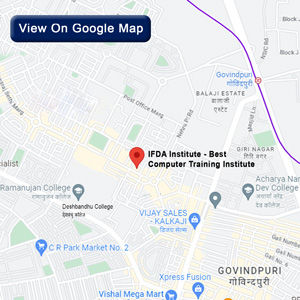How To Become A Affilate Marketing

Affiliate marketing is one of the online business models that involves earning commissions as a result of selling other companies’ products or services. Since it is one of the most common means of earning money on the internet without having to come up with physical products. If you are interested in an online business that is easy to start and does not require a lot of investments, affiliate marketing can be a good choice. Here is a step-by-step guide on how to become an affiliate marketer:Here is a step-by-step guide on how to become an affiliate marketer:
1. Choose a Niche
The first step is to decide what specific area or topic you would like to specialize in. Specializing in a given area enables you to build a reputation as an expert in a certain discipline, and it also means that one can only promote affiliates that are closely related to your topic of discussion. Some of the major affiliate marketing categories are health/fitness, finance, investment, dating/relationship, software, etc. Just take some time to do a few basic keyword searches so you can get a feel for what sub-niches of your larger category have reasonable levels of monthly search volume and at least a few relevant affiliate products.
2. Build Your Website
You do not require a website to be an affiliate marketer, especially if your marketing is going to be mainly on the social media platforms. However, owning an informational website about your niche is the best way to promote affiliate offers as recommendations that are related to your work and knowledge. The self-hosted WordPress websites are also the simplest to host. There is nothing wrong with not creating flashy designs; the only important thing is that the site offers some informational value to the visitors. As a recommendation, it is also advisable to have an ‘About Me’ page for establishing credibility too.
3. Find relevant affiliate programs.
This is because there are companies such as ShareASale, FlexOffers, and CJ Affiliate that have thousands of affiliate programs in various niches to which you can apply. This is especially useful if you are looking for a specific type of program or want to search keywords related to your niche. It is important to carefully go through the terms of each program before applying—carefully examine the commission structures, cookie duration, and pay-out thresholds. This is an affiliate program that is well known, and there are other famous ones such as Siteground if you are in internet marketing, AWeber, Bluehost, and Clickbank products.
4. Get approved for programs
After identifying relevant affiliate programs, the next step is to apply for an affiliate membership. Every program has its requirements for approval; however, some of the most frequent considerations are the availability of a website related to the niche of your program as well as an active subscribed email list and social media connections. Your approval chances are higher if you already have an audience and if your content is somehow connected to the merchant’s products. If you fail at some programs at first, do not lose hope—develop your site and your audience for about several months, then apply again.
5. Generate Your Affiliate Links
Once you get accepted into all the affiliate programs, you are provided with unique affiliate links to market every merchant’s products and/or services. These links enable the merchant to accurately track and reward your referrals whenever the people visiting the site follow your link and take the necessary action, for instance, when they make a purchase or sign up for a free trial. Nearly all affiliate links are coded with specific tracking information that the brand adds to ensure that they give you credit for the lead or sale.
6. Promote Products
Now comes the exciting part of getting traffic that you can send to your affiliate promotions! The important thing is to integrate affiliate promotions into the content you are creating for your niche audience and not force affiliate links that don’t add value. For example, if you have written a list post on ‘best yoga mats for beginners’, it is okay to write a short description about the 2-3 yoga mats that you recommend wholeheartedly, share with your readers why these are your favorite products after you used them yourself, and then use your affiliate links to direct readers to where they can buy them.
7. Earn Commissions
How It Works: As a site visitor clicks your affiliate link and takes a specific action (or makes a purchase), you earn your commission! Some affiliate programs may offer their payments in the form of monthly checks, although this is only common after you have met the set minimum cashable amount ($50+). The commission rates are not standardized and depend on the merchant and products but normally range between 4% and 20% of the sale.
8. Grow Your Affiliate Income
Finally, if you generate more relevant traffic to your site through quality content and audience participation, you are likely to direct more traffic to your affiliate links and perhaps even record a steady rise in your monthly affiliate income. It does take some effort to consistently promote affiliate offers and provide useful content, but affiliate marketing can also be a great passive income source along with other monetization techniques on your website.
This must give you a clear picture of the crucial activities any one aspiring to be an affiliate marketer must take to get started and be successful. It does take a bit of work to get started, but once it is, it is a relatively passive income stream once you have consistent traffic. The key is simply to deliver as much utility and value as possible to your audience—the affiliate commissions will take care of themselves.
- Written By - Natasha Singh









